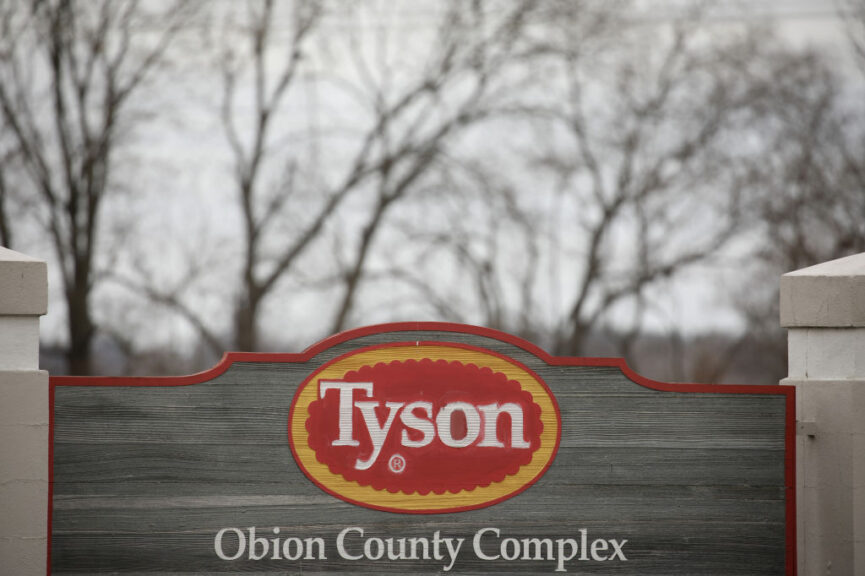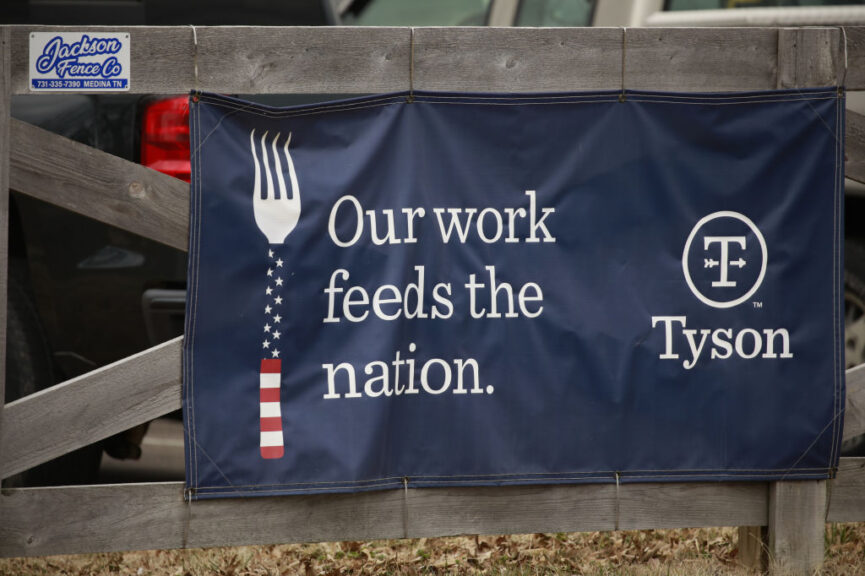 novanym95/500px. Getty Images.
novanym95/500px. Getty Images.
There are few things more American than firing up the grill after a long, chilly winter to cook some burgers, brats or even a massive, juicy steak. Pair it with a cold one and you’ve got a quintessential summer evening in the greatest country on Earth.
Well, you might have changed your preference in cold beer after the formerly iconic brand Bud Light decided to partner with trans-identifying activist Dylan Mulvaney last year, but you might also want to reconsider where you get your meat for that cookout.
As it turns out, the vast majority of the meat that ends up on Americans’ plates is processed by just a handful of extremely powerful companies. Several of those companies are owned by foreign interests, and one, Tyson Foods, seems eager to replace its American workforce with “refugees” pouring over the southern border.
Just four companies — Cargill, Tyson Foods, JBS, and National Beef Packing — control 85% of the beef market in the United States. Smithfield Foods, JBS, Hormel, and Tyson Foods have about 70% of the market for pork. Tyson, JBS, Perdue Farms, and Sanderson Farms (partly owned by Cargill) hold 54% of the poultry market.
President Joe Biden called out the consolidation of the meat industry by so few firms as he tried to duck blame for rising meat prices amidst historic inflation.
“Capitalism without competition isn’t capitalism. It’s exploitation. That’s what we’re seeing in meat and poultry industries now,” Biden said in 2022 as part of a plan to encourage “meaningful competition” in the meat industry. The administration promised to use $1 billion in American Rescue Plan funds to help independent meat producers.
Smithfield Foods, the largest single pork producer in the U.S. (26% of the total market share), is entirely owned by the Chinese company WH Group, and the company’s purchase of Smithfield in 2013 was the largest Chinese acquisition of an American company up to that point. Several senior executives at WH Group are members of the Chinese Communist Party, according to an investigation by the Daily Caller News Foundation, and the company owns around 150,000 acres of land in 29 states through Smithfield.
JBS, the world’s largest meat producer, and National Beef Packing’s parent company, Marfrig, are Brazilian companies. Both have been accused of human rights abuses toward natives of the Amazon and illegally cutting down swathes of rainforest to make new land suitable for cattle grazing.
Tyson Foods, which has considerable market shares in all three major U.S. meat sectors (beef, pork, and poultry), made headlines recently over its comments about hiring more immigrant labor as the illegal immigration crisis continues to unfold on the southern border.
The company has partnered with the nonprofit Tent Partnership for Refugees to hire immigrants who have moved to New York over the last two years, even as the influx of over 180,000 illegal aliens has created a crisis in the state, Bloomberg reported.

Luke Sharrett/Bloomberg via Getty Images
On one day in February, Tyson hired 17 migrants from Venezuela, Mexico, and Colombia in Manhattan to work at Tyson’s Humboldt, Tennessee, plant. In early March, Tyson reportedly hired 70 migrants. Tyson already employs about 42,000 immigrants and refugees, a third of its American workforce of roughly 120,000.
“We would like to employ another 42,000 if we could find them,” Garrett Dolan, a human resources leader at Tyson, told Bloomberg.
“We’re recognizing there’s not a lot of people that are going to be working labor-manufacturing jobs that are American,” Dolan said, adding that many of the new hires “are going to come from refugees and immigrants, so we’re now in the business of strategically thinking that through.”
In addition to frontline positions that pay $16.50 an hour, Tyson is also providing migrant workers with other benefits, including on-site childcare, transportation, and optional English classes. The new hires from New York also get temporary housing, a relocation stipend to move to Humboldt, and paid time off.
The company also set aside $1.5 million for legal aid services and is providing workers with paid time off to attend court hearings. Tyson paid for 1,317 workers to become U.S. citizens last year.
“They’re very, very loyal,” Dolan said. “They’ve been uprooted and what they want is stability — what they want is a sense of belonging.”
Around the same time Tyson expressed its desire for ever more cheap immigrant labor, the company announced that it would shut down a plant in Perry, Iowa, which employs over 1,200 people, in June. The town of Perry contains around 8,200 residents, and the Tyson plant is the area’s largest employer, according to the mayor.
“It’s a big blow to the community,” Mayor Dirk Cavanaugh told Reuters. “It’s our largest employer in the area. It’s going to be tough to figure out what to do without them.”
In 2023, Tyson shut down plants in Missouri, Indiana, Arkansas, Virginia, Florida, and South Carolina. The company attributed several of the closures to cost-cutting efforts. In the third quarter of 2023, Tyson reported a loss of over $400 million, according to the Associated Press.

Luke Sharrett/Bloomberg via Getty Images
A spokesperson for Tyson insisted to USA Today that the closing of the Perry plant and the hiring of more immigrants were unconnected and that the company thoroughly vets all immigrant applicants for work authorizations. However, cities like Chicago and New York City have already begun expediting work permits for illegal immigrants who have flooded in on Biden’s watch.
Alongside its flagship Tyson brand, most well-known for chicken, Tyson Foods also owns Jimmy Dean (known for sausage), Hillshire Farms (deli and sandwich meat), and Ball Park (hot dogs), among many others.
A conservative exchange traded fund, American Conservative Values ETF, gave Tyson a “refuse to buy” label and said it would pull its holding from the company in response to the comments on immigrants workers.
“We believe Tyson’s management has blundered into a political minefield (and should have known better),” Bill Flaig, CEO of the company that manages the ETF, told Fox Business.
“The risk of alienating a significant percentage of their customers outweighs any potential economic benefit,” Flaig added. “In a recent Pew Research poll, 80% of U.S. adults say the U.S. government is doing a bad job of handling the migrant influx.”
He also said that other companies, such as Anheuser-Busch and Target, have paid the price for “alienating customers” by meddling in politics. Both Bud Light and Target were hit hard by boycotts from conservative customers last year, but it’s currently unclear if any similar movement is brewing against Tyson.
Ultimately, the U.S. meat industry represents an intersection of several important issues, including the consolidation of an important economic sector by a few very large, very powerful companies, those companies’ ownership by foreign interests, and their reliance on, and support for, high levels of immigrant labor.
Source link

